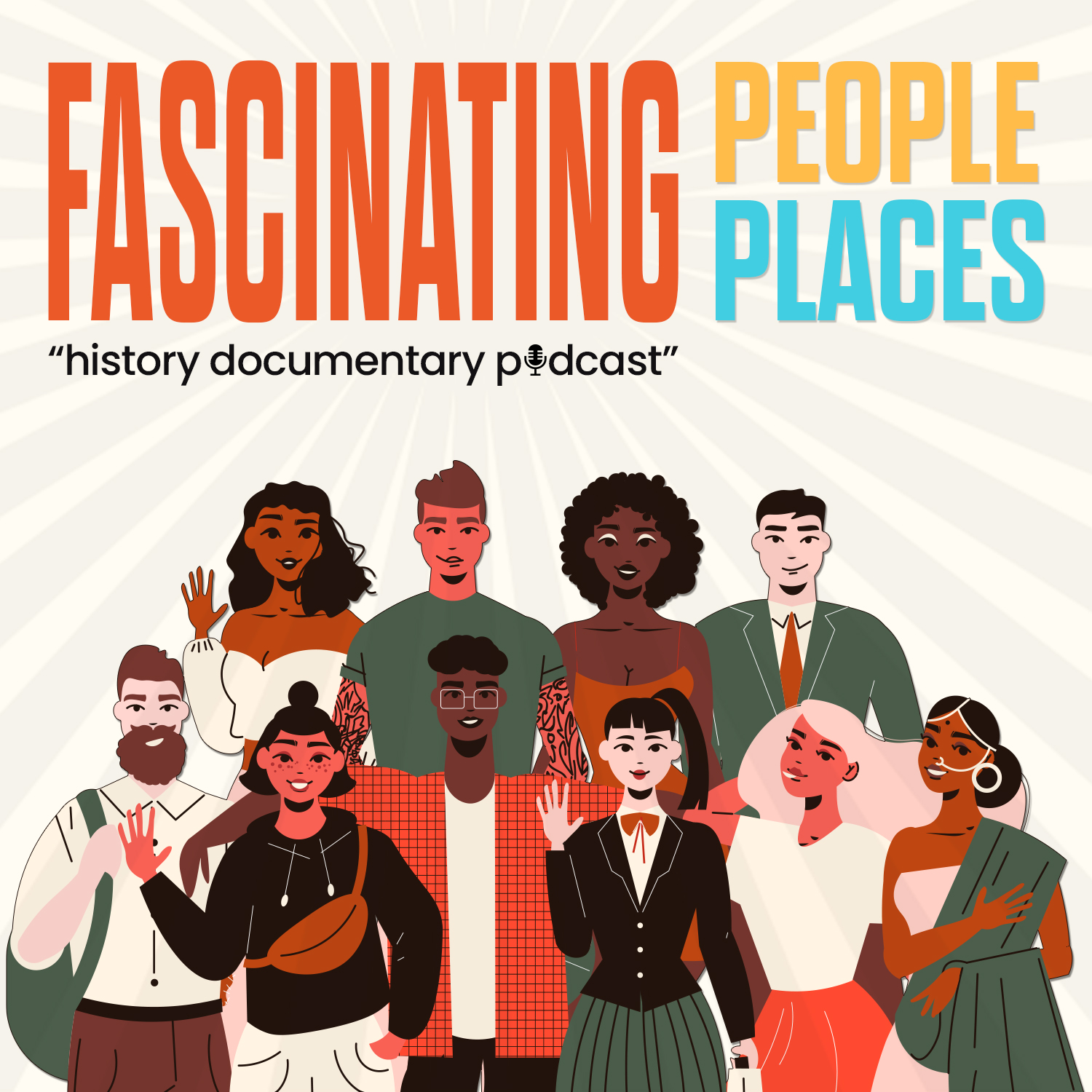
”Welcome to ’Fascinating People, Fascinating Places,’ the engaging bi-weekly documentary podcast that takes you on an immersive journey through the realms of news, history, politics, religion, and social justice. Join us as we delve into the depths of these critical subjects with leading experts and celebrity guests who bring their unique insights to the table. If you’re passionate about history, news, or social consciousness, this podcast is your essential guide. Discover moving stories and hear firsthand accounts from eyewitnesses to historic events that have shaped our world. We’re dedicated to unearthing the untold narratives and shedding light on vital issues such as history, social justice, and politics. Subscribe now to ’Fascinating People, Fascinating Places’ and be part of our mission to educate, inspire, and empower.”
Episodes
Sunday Jun 23, 2024
Madagascar Discovery With Dr. Patricia Wright
Sunday Jun 23, 2024
Sunday Jun 23, 2024
In 1986, anthropologist Patricia Wright arrived in the tropical paradise of Madagascar. Seemingly, she was hunting a ghost: the greater bamboo lemur — then believed to be extinct.
Lemurs predate humans by millions of years and have long been prevalent on Madagascar. In contrast, the first human settlers arrived on the Island within the last few thousand years. Despite our relatively short period of coexisting with these animals, human activities have contributed to their decline and — in some instances — apparent extinction.
But, remarkably against all odds, the redoubtable Patricia Wright found not only that the lost lemurs were still alive. She also discovered a new species that was entirely new to science.
In this episode, I speak with Dr. Wright who is now a Professor and primatologist at Stony Brook University. At the same institution she founded the Institution for the Conservation of Tropical Environments which operates the Centre Val Bio in Madagascar.
We discuss her life’s work, her remarkable discoveries, lemurs, and the magical island of Madagascar.
Guest: Dr. Patricia Wright
Patricia C. Wright's research in tropical ecology, primatology, and conservation biology includes a long term study (1986 - present) of the behavioral ecology of Propithecus edwardsi, the Milne Edward's sifaka, in Ranomafana National Park, Madagascar. Wright, her students and post docs investigate the demography, feeding behavior, parasite loads, infant development, genetics, tooth wear, reproductive behavior, predation pressure, and aging in this wild community of four adjacent rain forest sifaka groups. Current research includes investigating the growth, tooth eruption patterns, and ontogeny of various lemur species, the nutritional composition of lemur foods, the relationship between lemur foods and medicinal plants, the role of parasites on populations, and the effect of habitat disturbance on lemur populations. Wright′s long term database on individual lemurs, weather patterns, and plant phenology is maintained at SUNY Stony Brook. Wright also conducts biodiversity surveys in tropical forests of Madagascar to address conservation problems. In addition, Wright is spearheading construction of dormitories and computer facilities at the international research station (Centre ValBio) adjacent to Ranomafana National Park. Wright′s recent NSF grant addresses senescence in wild lemurs, particularly mouse lemurs and sifakas.
Selected awards
Indianapolis Prize Winner, Indianapolis Zoological Society (2014)
Lifetime Achievement Award from the Wildlife Conservation Film Festival (2014)
Commandeur National Medal of Honor of Madagascar (2012)
Resources:
Patricia Wright Bio Stony Brook University
Music: Pixabay
This episode is sponsored by World History Encyclopedia, one of the top history websites on the internet. I love the fact that they’re not a Wiki: Every article they publish is reviewed by their editorial team, not only for being accurate but also for being interesting to read. The website is run as a non-profit organization, so you won’t be bombarded by annoying ads and it’s completely free. It’s a great site, and don’t just take my word for it they’ve been recommended by many academic institutions including Oxford University. Go check them out at WorldHistory.org or follow this link: World History Encyclopedia.

No comments yet. Be the first to say something!